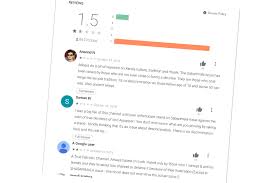 A lot of people favor to outrage quite often about a lot of things on social media. That is where anger is spread in different directions, according to what they feel has offended them. Fellow internet users are targeted, virtual gangs are created to harass or bully individuals and brands and, in some cases, force them into submission. Vox populi, vox Dei, a Latin phrase which means the voice of the people is the voice of God, was surely never envisioned for a time when online troll armies are created to bully, threaten and bulldoze their opinion through. Recent history has testified often that the anonymity that the world wide web and social media platforms offer, is used often to the fullest by anyone with malicious intent. The Sabarimala Temple controversy is just the latest.
A lot of people favor to outrage quite often about a lot of things on social media. That is where anger is spread in different directions, according to what they feel has offended them. Fellow internet users are targeted, virtual gangs are created to harass or bully individuals and brands and, in some cases, force them into submission. Vox populi, vox Dei, a Latin phrase which means the voice of the people is the voice of God, was surely never envisioned for a time when online troll armies are created to bully, threaten and bulldoze their opinion through. Recent history has testified often that the anonymity that the world wide web and social media platforms offer, is used often to the fullest by anyone with malicious intent. The Sabarimala Temple controversy is just the latest.
But there is an added dimension to the online warfare—application stores, such as the Google Play Store and the Apple App Store. If you have a problem with someone about something, and that someone has an app for your smartphone, go and give it a poor rating. When enough people do it, the ratings for the app plummet, other users may refrain from downloading it thinking it is a bad app, it automatically drops off the top ranks too and it eventually hurts business. Remember how back in 2015, Bollywood actor Aamir Khan said something about how he perceived the socio-political environment in the country at the time, at the Ramnath Goenka Excellence in Journalism Awards? The statement made by Khan angered a certain demographic of people who believe they more nationalistic than you and I. Incidentally, Khan was the brand ambassador for ecommerce platform Snapdeal. The measure that the online troll armies resorted to was to head to the Google Play Store (apart from trending hashtags on Twitter) and started to downgrade the Snapdeal app’s rating with 1-star ratings. Eventually, business was suffering, and Snapdeal had to sever ties with Khan.
In the same year, telecom service provider Airtel was launching the Airtel Zero platform, which allowed access to certain websites without incurring any data charges, while users would need to pay for accessing other websites. Without getting into the debate about the advantages and disadvantages of net neutrality, Flipkart was meted out the same treatment on the application stores, with 1-star ratings pulling down its ranking, and impacting business. Flipkart, predictably, gave up on Airtel Zero—a program that later was shuttered without anyone really missing it.
So, how important are app store ratings? Very important, ask any developer, and they’ll tell you this is the first step in convincing a new user to pay for or download their app—users will make a first and perhaps lasting impression about an app based on what they see on the application page in the app store. But what happens if your app is in the line of fire of nationalists, wingmen or just about any troll army? Apple and Google take slightly different approaches to that.
Apple does not intervene or alter any ratings for any app. It can detect unusual patterns when people start rating an app en-masse, either positively or negatively, but cannot step in for the sake of democracy. What if the user ratings are genuine? What if the app has a bug or what if the update has broken the functionality? There is also a chance that biases could come into play, in such a scenario. In 2017, Apple added additional tools for app developers to manage ratings for their app, including granular controls for specific ratings for each app version. Simply put, developers can now ‘reset’ the app ratings in various instances, such as the ones Snapdeal and Flipkart faced—in the tool called App Store Connect. In normal scenario, no developer would want to reset the ratings and do the hard work of having to gain those votes of appreciation again, which they may have already invested a lot of time and effort in.
On the other hand, the Play Console Help data suggests that Google wants app developers to report any unusual ratings and reviews behavior for their apps through the Play Console tool—and Google will weigh it against the comment posting policy. Unlike Apple, Google does not give app developers the option to reset the ratings for their app listing. If app developers attempt to con the system by publishing the same app from another developer account, the Play Store systems will detect that change and mark it as spam.




